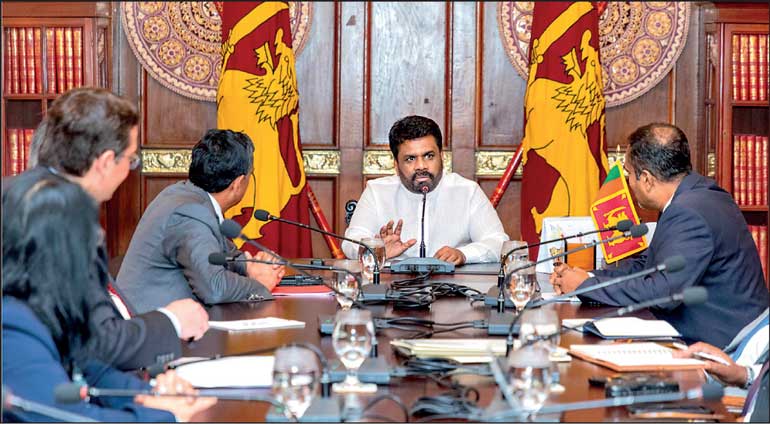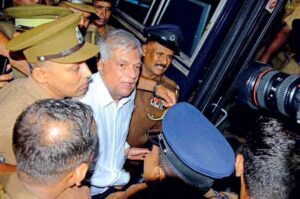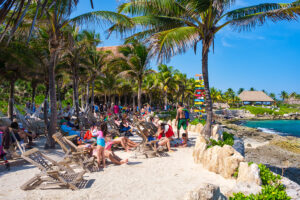
Sri Lanka’s Democracy at a Crossroads: Arrests, Reforms, and the Struggle for Justice
- CNL Reporter
- August 31, 2025
- Weekly Political Review
- Sri Lanka
- 0 Comments
Weekly Political Review
Sri Lanka stands at a pivotal juncture in its democratic journey, grappling with the complexities of governance, accountability, and public trust. The recent arrest of former President Ranil Wickremesinghe on charges of misusing public funds has ignited a firestorm of political debate, raising questions about the true intentions behind anti-corruption measures and the broader implications for the nation’s democratic health.

On August 22, 2025, former President Ranil Wickremesinghe was arrested over allegations of diverting state funds for a personal trip to the UK in 2023. The charges, stemming from his tenure as president, have polarized public opinion. Supporters view the arrest as a necessary step in the fight against corruption, while critics argue it may be politically motivated. The United National Party (UNP), Wickremesinghe’s political base, has condemned the move as an act of political vendetta, emphasizing the need for judicial independence and due process.
International observers have also weighed in. Indian Congress MP Shashi Tharoor labeled the charges as “trivial” and cautioned against “vendetta politics,” urging Sri Lanka to uphold democratic principles in its legal proceedings.
Anti-Corruption Reforms: Genuine Change or Tactical Maneuver?
President Anura Kumara Dissanayake’s administration, which came to power in late 2024 on an anti-corruption platform, has initiated several reforms aimed at addressing systemic corruption. The 2023 Anti-Corruption Act and the National Anti-Corruption Action Plan (NACAP) 2025–2029 are central to these efforts. However, the arrest of a former president raises questions about the consistency and fairness of these reforms. While targeting high-profile figures may signal a commitment to accountability, it also risks being perceived as selective justice if not applied equitably across the political spectrum.

Public Response: Protests and Strikes Reflecting Deep Discontent
The arrest has sparked widespread protests in Colombo, with thousands of Wickremesinghe’s supporters taking to the streets. Demonstrators have decried the move as politically motivated and a threat to democratic freedoms. The Socialist Equality Party (Sri Lanka) has organized online public meetings to support postal workers who remain on strike, defying government threats.
These events underscore a broader public disillusionment with the political establishment and a demand for genuine reforms that go beyond symbolic actions.
Economic Strategies: Betting on High-End Tourism
In an effort to revive the economy, the Dissanayake administration has turned to high-end tourism, inaugurating the $1.2 billion “City of Dreams” casino complex in Colombo. This venture, a joint project with Macau-based Melco Resorts & Entertainment, aims to attract tourists from India and China, offering visa-free access and a limited domestic gaming market. While the initiative is expected to boost revenue and job creation, it has faced criticism for potential oversight gaps and imbalanced legislative provisions.

The government’s focus on luxury tourism raises concerns about the inclusivity of its economic policies and whether they address the needs of the broader population.
Human Rights and Accountability: A Long Road Ahead
Despite the political upheavals, Sri Lanka continues to grapple with human rights issues, particularly concerning accountability for past abuses. The UN Human Rights Office has highlighted the government’s “historic opportunity” to end decades of impunity and deliver justice for victims of past violations. However, progress has been slow, and structural conditions that led to past violations persist.
The arrest of a former president, while significant, does not address the broader systemic issues that hinder justice and reconciliation. True democratic progress will require comprehensive reforms that tackle both current corruption and past injustices.
Conclusion: Navigating the Path Forward

Sri Lanka’s political landscape is at a crossroads. The arrest of former President Wickremesinghe has ignited debates about the nature of anti-corruption efforts and their impact on democratic institutions. While the government’s initiatives signal a commitment to reform, they must be accompanied by genuine efforts to address systemic issues and ensure accountability across all levels of government. The public’s response indicates a demand for transparency, fairness, and inclusivity in the nation’s political processes.
As Sri Lanka moves forward, it must balance the pursuit of justice with the preservation of democratic principles, ensuring that reforms lead to a more equitable and just society for all its citizens.

